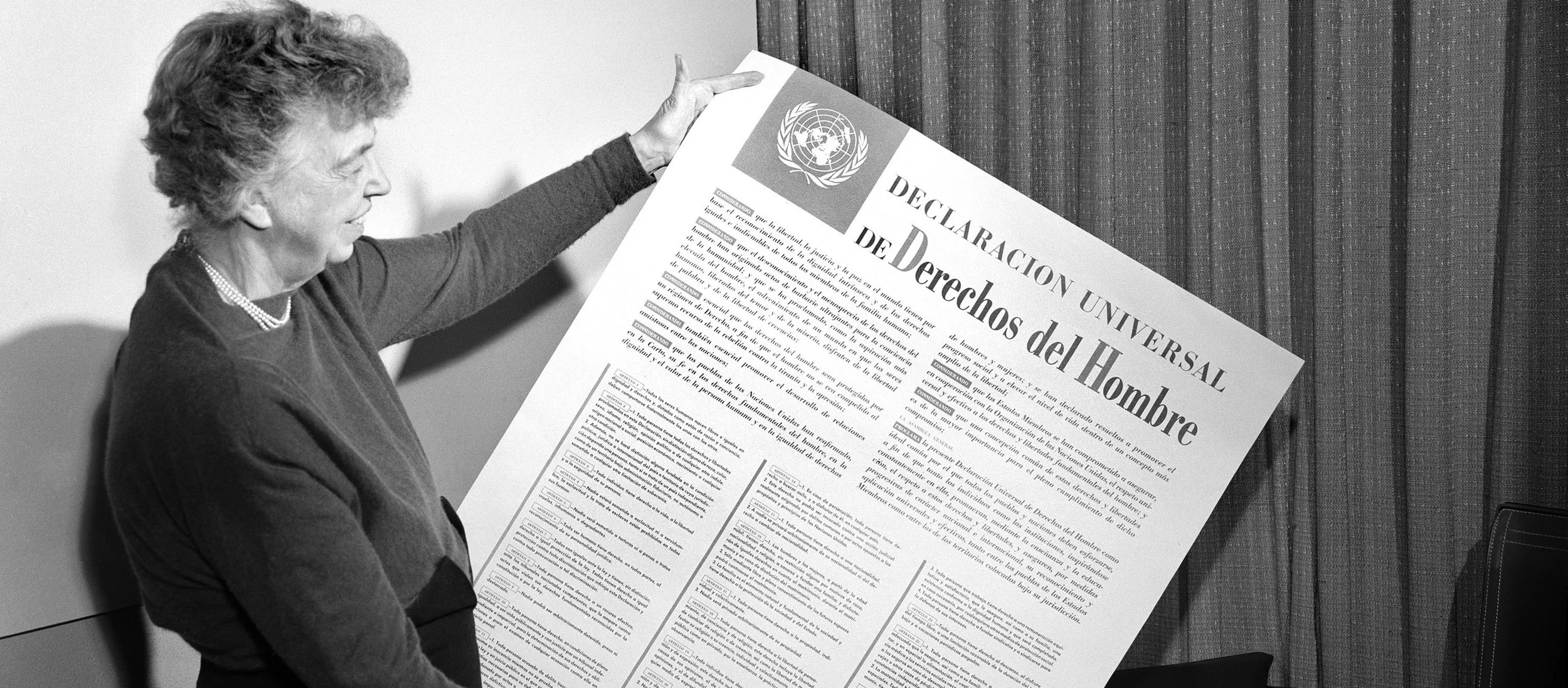Eleanor Roosevelt: Larger-than-life woman diplomat
It took a decisive woman to put up with the male-dominated United Nations Commission on Human Rights to labor and create a single document as a guiding light for working on world peace and human rights - the Universal Declaration of Human Rights. She was Eleanor Roosevelt, diplomat and former US First Lady and wife to Pres. Franklin Roosevelt.
The UN Declaration of Human Rights, my most important work - Eleanor Roosevelt
Although we lived in a different place and time, the impact and influence of Eleanor Roosevelt has reached and benefitted me. I wouldn’t want this semester in my doctoral studies to finish without having to look back and reflect on what she had done as a humble, persistent, and visionary leader. Today, more than ever, we all need to continue promoting human rights and world peace.
Roosevelt was one of those leaders who have reached the pinnacle of leadership, and thus became larger than life. I personally admire and regard her as an impactful world leader. In an interview, she once said that the UN Declaration of Human Rights was her most important work.
As a diplomat, Roosevelt led to produce the most important declaration that would bind peoples of the world to work for peace and equality. The UN and the Universal Declaration of Human Rights, created by the UN in 1948 to prevent global wars in the future, is Roosevelt’s legacy. She navigated in an eerie and icy environment of the increasing Cold War and had, for instance, wrestled with Russian diplomats who did not believe that human rights was a birth-right but rather a prerogative of government to bestow. In the end, the UN Declaration of Human Rights was passed with the 48 member states and zero negative votes.
Criticized that the UN draft was an expression of US imperialism, Roosevelt and the Commission on Human Rights consciously sought contributions from a wide range of cultures and beliefs - such as from China, Canada, France, and Lebanon during its drafting.
Roosevelt’s style of work was that she would spend time talking to everyone, not just the high-level ministers and secretaries, but more importantly, to the staff secretaries and every staff member of the ministerial staff. She included everyone, the obscure and high-positioned, in her work to be able to listen to their sentiments and ideas. This leadership ethic grounded her on social reality and humbled her as well.
Finding a balance between assertion and articulation, Roosevelt dealt with male-dominated HR commission to push for a universality of human rights.
Roosevelt listened to and weighed in several philosophical disputes among her colleagues at the UN on Thomas Aquinas versus Confucius, for instance. Her self-study on world religions and cultures had been useful – and necessary in facilitating divergent political and cultural backgrounds. She also conducted countless individual meetings to hear everyone out. Roosevelt was an active listener as a negotiator, thus enabling her to come up with workable resolutions.
Eleanor Roosevelt is one leader I always looked up to in the realm of diplomacy. Clearly, she has become a larger-than-life woman leader. # (Photos are from Politico and UNHRC)


